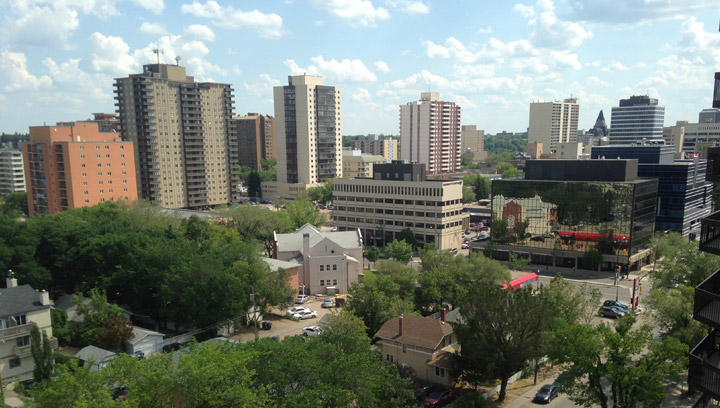The provincial government has implemented a moratorium on evictions for some small businesses as the economy works to gradually reopen.

The province said this move is targeted at commercial landlords who are eligible for the Canada Emergency Commercial Rent Assistance (CECRA) program but are not part of it.
Saskatchewan’s trade minister said the federal program helps support small businesses by reducing their rent during the COVID-19 pandemic.
“For those eligible landlords who choose not to apply, there will be a moratorium on evicting small business tenants who are not able to pay their rent,” Jeremy Harrison said in a press release.
CECRA started taking Saskatchewan applications on May 27.
The program offers rent relief to tenants whose businesses have paused or have been affected by the pandemic and have lost at least 70 per cent of their revenue.

Get breaking National news
To be part of the program, landlords have to offer a minimum 75 per cent rent reduction from April to June.
The program offers landlords a forgivable loan of half of the tenants rent.
Saskatchewan Hotel & Hospitality Association said this is a win for businesses because there wasn’t an incentive for landlords to join the program keeping fixed costs high for business tenants.
“(Businesses) don’t own the land outright or the building. This is a huge challenge and when there is no revenues. How do you pay those fixed costs? Without some sort of relief or protection in place, there was a lot of anxiety out there for sure,” president Jim Bence told Global News.
“We will continue working with our business community and working to support them, as they will be essential to our economic recovery in the important weeks and months ahead,” Harrison added.
Questions about COVID-19? Here are some things you need to know:
Symptoms can include fever, cough and difficulty breathing — very similar to a cold or flu. Some people can develop a more severe illness. People most at risk of this include older adults and people with severe chronic medical conditions like heart, lung or kidney disease. If you develop symptoms, contact public health authorities.
To prevent the virus from spreading, experts recommend frequent handwashing and coughing into your sleeve. They also recommend minimizing contact with others, staying home as much as possible and maintaining a distance of two metres from other people if you go out. In situations where you can’t keep a safe distance from others, public health officials recommend the use of a non-medical face mask or covering to prevent spreading the respiratory droplets that can carry the virus.
For full COVID-19 coverage from Global News, click here.







Comments